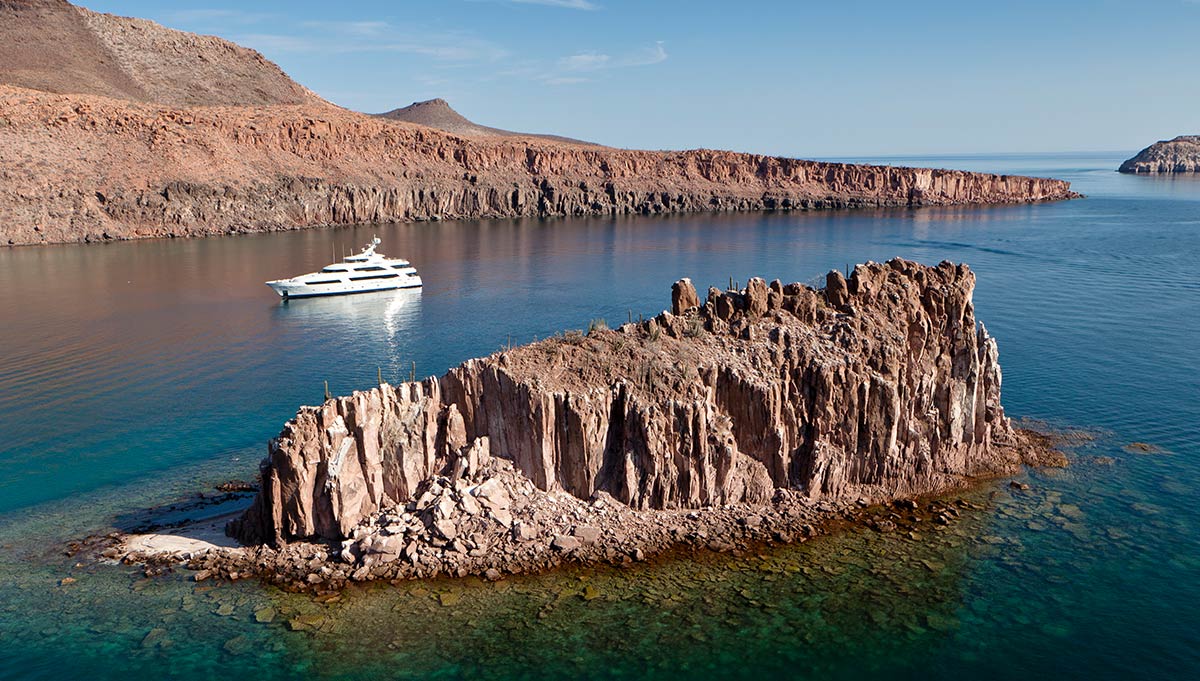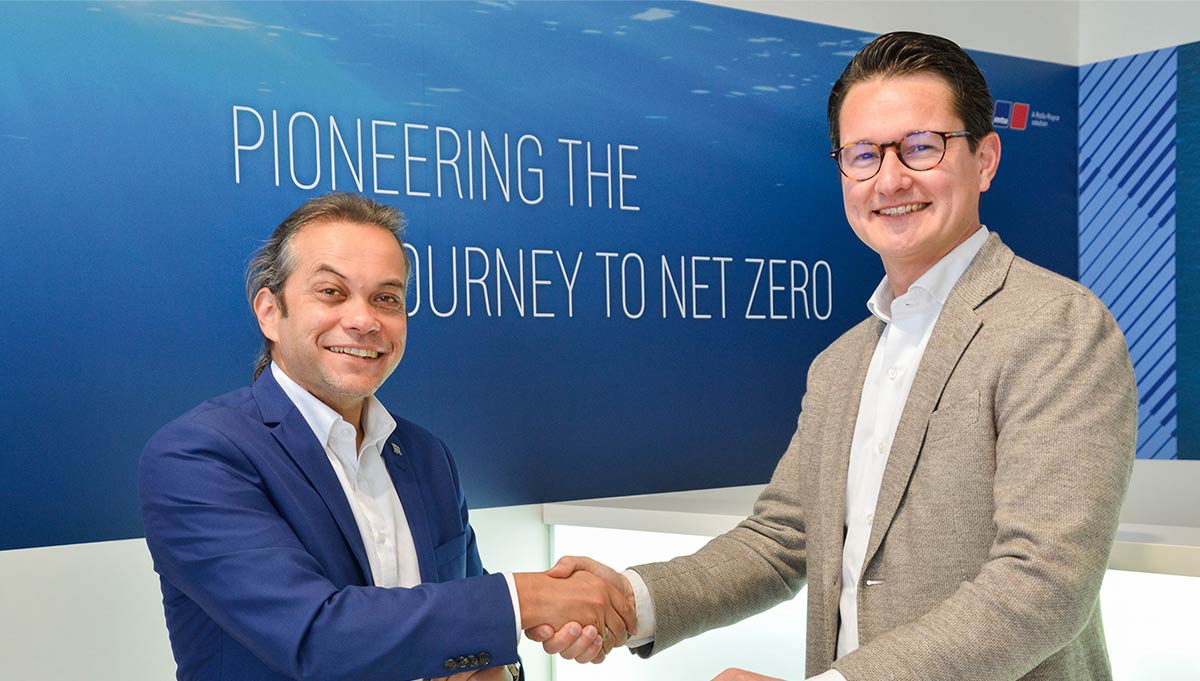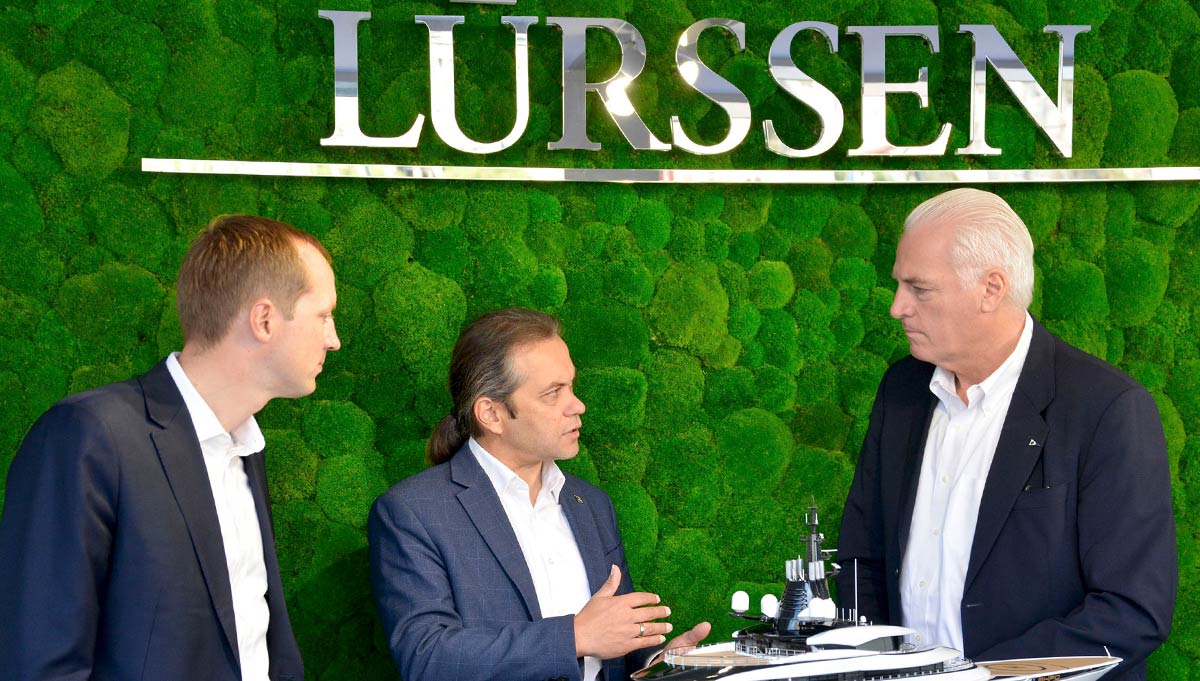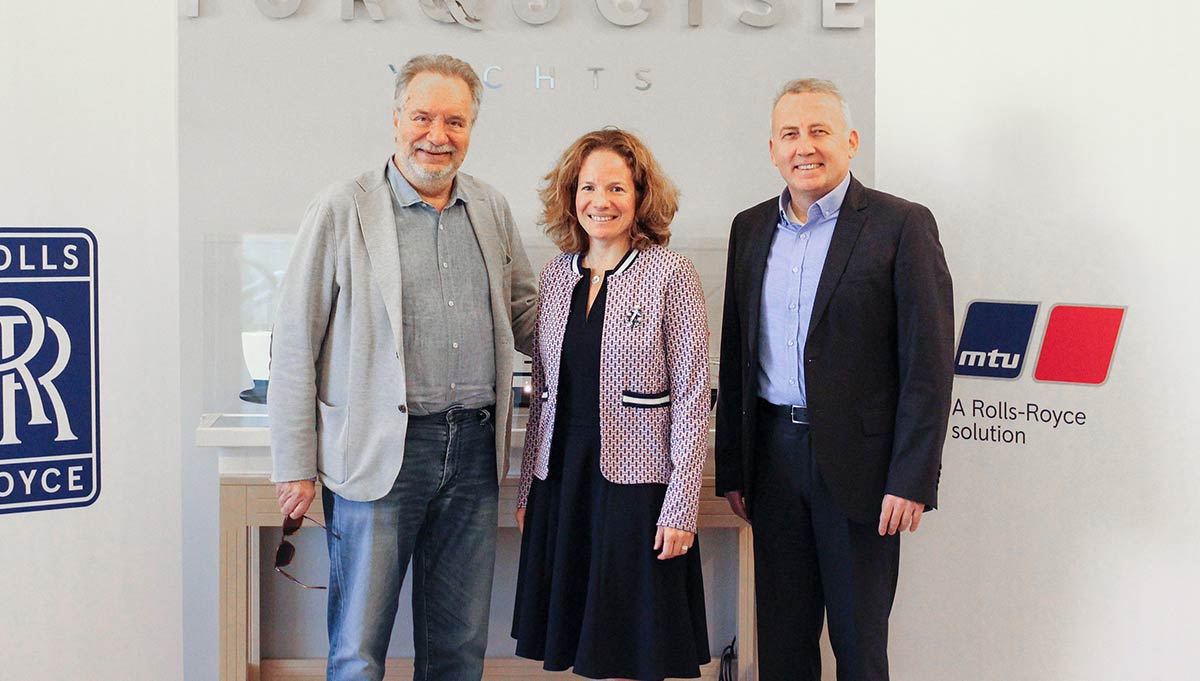
Photo: Jeff Brown & Delta Marine

Photo: Jeff Brown & Delta Marine
Engines of change
As superyachting seeks routes to a fossil-free future, engine manufacturer Rolls-Royce is also going through a process of transformation – it’s the basis of collaboration that spells concrete progress toward a reduced yachting footprint.
Superyachting has long been a hotbed of innovation in the marine industry, driven in no small part by the desire of many superyacht owners – either those who come from tech backgrounds or those who want to be leading the tech revolution – to be the first. Yachts such as the 2009-launched yacht Ethereal, for example, are typical of the lengths owners will go to – and the level of their own money they are willing to spend – to explore and develop new efficient hulls, components and propulsion systems.
The superyacht industry as a whole is now taking ever-greater strides toward a fossil-free future with more and more projects offering hybrid propulsion systems and the promise of hydrogen power when it finally becomes available on a mass-market scale. Until recently the truth, however – much like other maritime or heavy transport sectors – was that reliance on internal combustion engines would remain as battery technology can’t cope with the sustained power requirements of shipping and hydrogen is not yet freely available.
That is starting to change as engine manufacturers themselves realise they need to be pioneers in new engine technology rather than clinging to tech of the past – after all, the diesel engine is now nearly 140 years old. Case in point: Rolls-Royce Power Systems is working toward a new goal it has dubbed ‘Net Zero@Power Systems’ as it transforms from an engine manufacturer into what it calls ‘a provider of integrated sustainable propulsion and energy solutions’. Its goal is to achieve by 2030 a 35 percent emissions reduction across all its products relative to 2019, although this is only the start.

Water Revolution Foundation & Rolls Royce

Water Revolution Foundation & Rolls Royce
This is important, because part of that transition includes something immediate with the release from next year of its key mtu series 2000 and 4000 engines for sustainable fuels such as HVO renewable diesel. This has always been seen as the first step away from reliance on fossil fuels, and with mtu engines a prime choice for superyachts all over the world, the news is significant.
But this year both the Cannes Yachting Festival and the Monaco Yacht Show, each held in September, revealed how superyacht builders and engine manufacturers are pushing forwards toward a greener future together. Central to these developments was Rolls-Royce, who announced partnerships with Italian superyacht builder Sanlorenzo for yachts from 40 to 70 metres, with German icon Lürssen for yachts over 75 metres, and with Turquoise Yachts for a hybrid solution for the yard’s new 76-metre yacht.
The Sanlorenzo partnership will feature a methanol-based propulsion system using ‘green’ methanol running two mtu methanol engines based on the Series 4000 diesel. “We’re making shipping more environmentally friendly and easier on the climate, and this agreement is a big step forward in the right direction,” says Denise Kurtulus, Vice President of Global Marine at Rolls-Royce Power Systems: “Synthetic methanol, produced using electricity generated from renewable sources, is the obvious fuel of the future for many maritime applications – not least yacht propulsion. Sanlorenzo is one of the most innovative yacht builders, making it our partner of choice for this project.”
The project is due for launch in 2026, making this more than just another pipedream or concept yacht. “The introduction of innovations and technologies to reduce the environmental impact of yachts has long been the focus of the Sanlorenzo Group’s research and development department,” offers Massimo Perotti, Executive Chairman and CEO of Sanlorenzo. “The agreement with Rolls-Royce for the integration of methanol propulsion systems on our superyachts represents for our Group a memorable moment: thanks to the marine use of methanol as a fuel for combustion engines, which allows carbon-neutral powerful propulsion, Sanlorenzo will be able to give the true answer to the demand for sustainability in the yachting sector.”

Lurssen & Rolls Royce

Lurssen & Rolls Royce
For Peter Lürssen, CEO of Lürssen yachts, methanol offers clear advantages over other alternatives to fossil fuels and, moreover, is becoming front and centre in the minds of prospective clients as they look to reduce their environmental impact. “We’re now seeing that today’s prospective buyers of tomorrow’s yachts are increasingly thinking about how they can make running their vessels as climate-friendly and environmentally friendly as possible,” he notes. “We are therefore registering a growing willingness among future customers to invest in new technology for climate protection, and to make space available for it in the vessel.”
While Turquoise Yachts’ agreement is for a current hybrid system rather than a future methanol engine-based package, it still marks a significant stepping stone, and a clear indication that owners all over the world – and shipyards in all areas of the world – are taking steps toward tomorrow. The hybrid system for the new 76-metre yacht comprises two mtu Series 4000 engines with selective catalytic converters to reduce carbon and NOx emissions alongside two e-motors and associated systems for fully electric operation. “With this new project we are setting new standards for comfort and environmental protection in a mega yacht,” states Mehmet Karabeyoğlu, Partner of Turquoise Yachts. “We are happy to have found Rolls-Royce as the right partner for this endeavour.”

Turquoise Yachts & Rolls Royce

Turquoise Yachts & Rolls Royce
These boundary-pushing projects will have far-reaching consequences, not only within the marine industry but also beyond, as superyachting makes its case as a sector driving change rather than reacting to it. “We will have methanol-powered propulsion systems in our portfolio for other maritime applications as well as yachts, for example for commercial shipping,” says Dr Otto Preiss, COO and CTO at Rolls-Royce Power Systems. “These will be part of our ecosystem with sustainable fuels that we’re currently building. The ecosystem will also include fuel-cell-powered applications as well as electrolysis of green hydrogen, the basic ingredient for green methanol.”
Such commitment was also evident in a further announcement that Rolls-Royce has stepped up its sustainability strategy by forging a partnership with Water Revolution Foundation, a non-profit organisation promoting sustainability in the superyacht industry. “We are fully committed to pioneering the way to NetZero and we are making great efforts to achieve this,” said Dr. Daniel Chatterjee, Director for Sustainability, Technology Management and Regulatory Affairs at Rolls-Royce Power Systems. “Our partnership with the Water Revolution Foundation is therefore only logical. It provides an excellent platform for bringing all relevant industry players together to shape a common future in sustainable yachting and standards, and to do so with greater transparency.”



